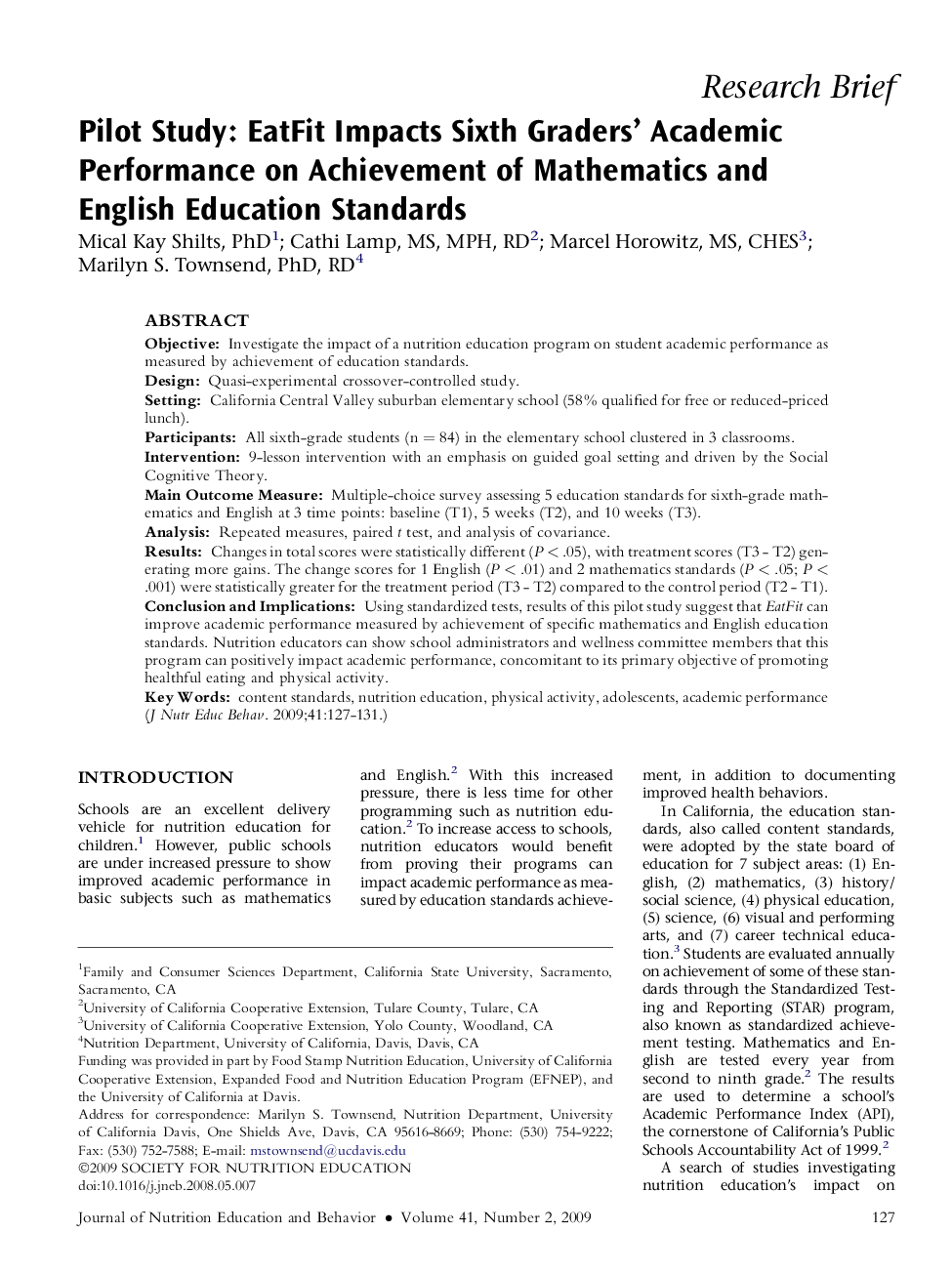| Article ID | Journal | Published Year | Pages | File Type |
|---|---|---|---|---|
| 363213 | Journal of Nutrition Education and Behavior | 2009 | 5 Pages |
ObjectiveInvestigate the impact of a nutrition education program on student academic performance as measured by achievement of education standards.DesignQuasi-experimental crossover-controlled study.SettingCalifornia Central Valley suburban elementary school (58% qualified for free or reduced-priced lunch).ParticipantsAll sixth-grade students (n = 84) in the elementary school clustered in 3 classrooms.Intervention9-lesson intervention with an emphasis on guided goal setting and driven by the Social Cognitive Theory.Main Outcome MeasureMultiple-choice survey assessing 5 education standards for sixth-grade mathematics and English at 3 time points: baseline (T1), 5 weeks (T2), and 10 weeks (T3).AnalysisRepeated measures, paired t test, and analysis of covariance.ResultsChanges in total scores were statistically different (P < .05), with treatment scores (T3 - T2) generating more gains. The change scores for 1 English (P < .01) and 2 mathematics standards (P < .05; P < .001) were statistically greater for the treatment period (T3 - T2) compared to the control period (T2 - T1).Conclusion and ImplicationsUsing standardized tests, results of this pilot study suggest that EatFit can improve academic performance measured by achievement of specific mathematics and English education standards. Nutrition educators can show school administrators and wellness committee members that this program can positively impact academic performance, concomitant to its primary objective of promoting healthful eating and physical activity.
